Most teens want to hit the open road the second they get their driver’s license. But a growing body of evidence suggests it’s important to put limits on when, where and with how many friends they drive.
Those restrictions can dramatically reduce the chances that teen drivers—the most crash-prone age group around—will get into an accident, says Angela Eichelberger, a research scientist at the Insurance Institute for Highway Safety (IIHS). “[Adults] need to remember that they have the keys,” she says. “They have the power to set the limits.”
But what restrictions are the most important, and how do parents go about enforcing them? Here are some tips from the experts at the IIHS.
Know The Law
 Many states have graduated licensing systems, which limit when teens can drive and how many passengers they can have in their car. Eichelberger says parents should know those rules and enforce them. But they shouldn’t necessarily stop there. “Parents can always take it a step further,” she adds. To make the process easier, refer to the handy state-by-state guide to license restrictions the IIHS has put together.
Many states have graduated licensing systems, which limit when teens can drive and how many passengers they can have in their car. Eichelberger says parents should know those rules and enforce them. But they shouldn’t necessarily stop there. “Parents can always take it a step further,” she adds. To make the process easier, refer to the handy state-by-state guide to license restrictions the IIHS has put together.
What is graduated licensing?
Like any new activity, learning to drive requires practice and gradual pacing. Graduated licensing introduces beginners to the driving experience in a low-risk manner, protecting both new drivers and others.
Graduated licensing systems include limits on late-night unsupervised driving and the number of teenage passengers in the car—factors that are known to contribute to high teen accident rates. These limits allow teenagers to get enough practice in different driving situations until they’re able to drive on their own without restrictions.
The three phases of GDLs are: a supervised learner’s period; an intermediate license, which allows unsupervised driving depending on various situations; and a full privileges license. Systems vary by state so visit iihs.org for information on GDL’s in your state.
How does graduated licensing help me?
Graduated license programs help teens learn and develop driving skills while lowering the risk of accident or injury. This is because supervision and lack of distraction allow you to concentrate fully on the road when you are still learning the basics.
GDLs also give parents peace-of-mind that their teen is protected from distractions at a critical time.
If your state has a GDL program, or if your parents are implementing one on their own, take advantage of it. You now have the perfect way to earn respect on the road and prove your commitment to driving responsibly without having to deal with friends, cell phones or other major distractions.
Restrict Driving At Night
About 40 percent of all fatal teen crashes happen at night, according to the IIHS, which is why it’s important to limit how much driving teens do after sunset. Most states have a curfew for teen drivers, with the strictest starting at 8 p.m. But some don’t kick in until after midnight. If parents live in one of those states, the IIHS says they might want to consider setting an earlier cutoff time.
Limit The Number Of Teenage Passengers
Studies have shown that the more teens there are in a car, the higher the chances of a crash. That’s because rowdy passengers can distract young drivers, and sometimes even goad them into taking chances. The IIHS recommends parents bar other teens from their child’s car. “Generally, we recommend there be no teen passengers,” says Eichelberger. “That’s the safest.”
Go Back To Basics
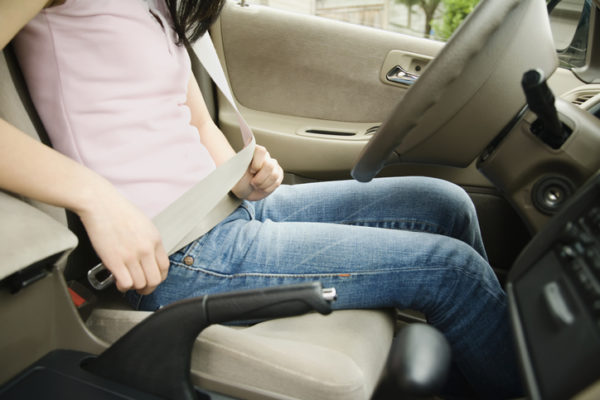 While some road rules may seem obvious—no drinking and driving, no texting while behind the wheel, always buckle up—many teens have a tendency to throw caution to the wind. (Most teens killed in crashes are not wearing seatbelts.) The IIHS recommends parents emphasize the importance of being a law-abiding driver.
While some road rules may seem obvious—no drinking and driving, no texting while behind the wheel, always buckle up—many teens have a tendency to throw caution to the wind. (Most teens killed in crashes are not wearing seatbelts.) The IIHS recommends parents emphasize the importance of being a law-abiding driver.
Communicate The Rules Clearly
Often, parents set limits for their teens, but at least one study from the University of Michigan shows the rules sometimes fall on deaf ears. In some cases, “parents may not have made all of their expectations clear,” says Eichelberger. That’s why it’s important they have a serious conversation with their kids about driving restrictions and outline what will happen if teens flout the rules.
Follow Through On Punishments
If teens break the rules, it’s important there be consequences, says Eichelberger. Among the most effective: revoking driving privileges. “Parents control the keys,” she concludes.
Protect Your Teen Driver with Auto Insurance from GEICO
Insure your teenage driver with GEICO auto insurance today so they can drive worry-free tomorrow. Get a free quote and join the GEICO family for protection you can count on.
By Andrew Raven

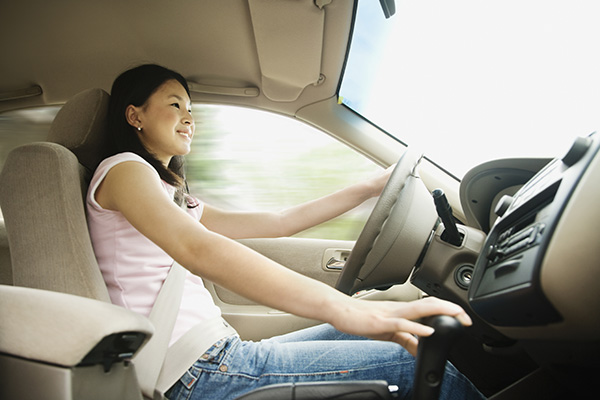


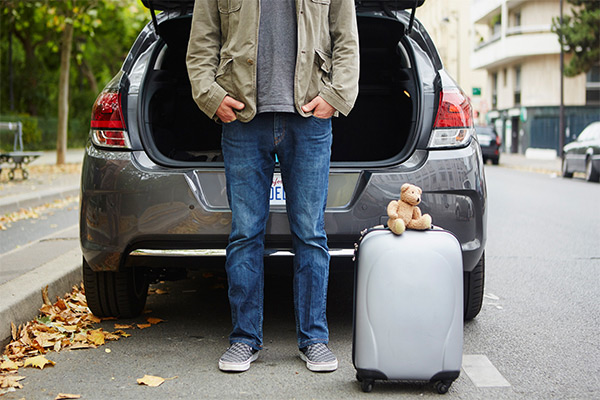
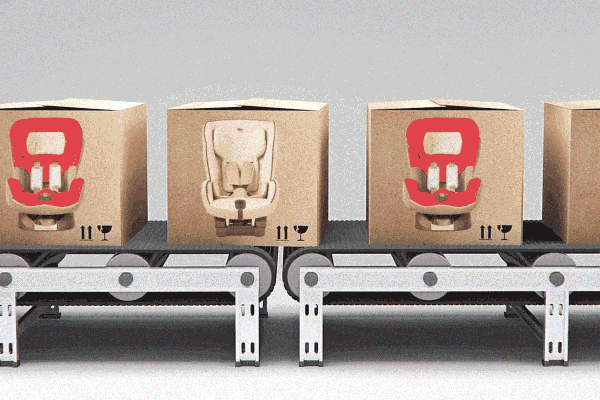
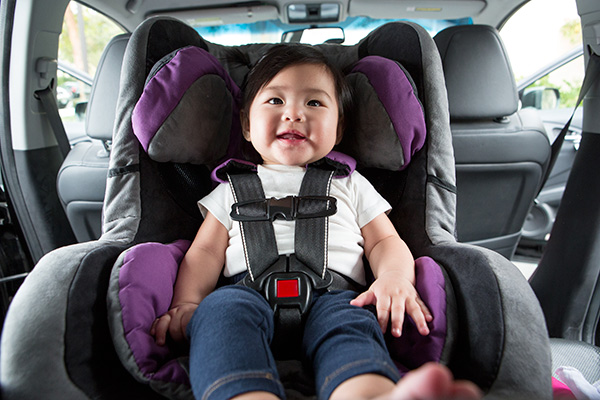
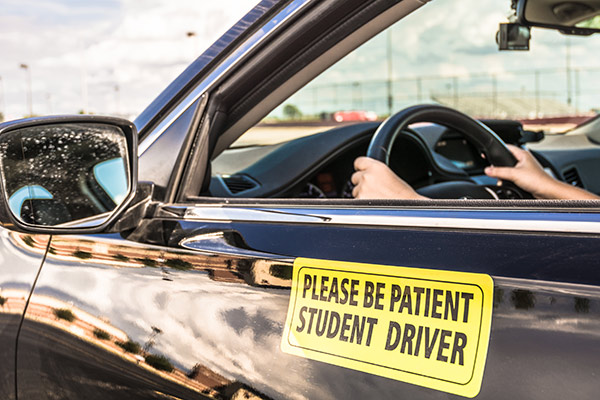

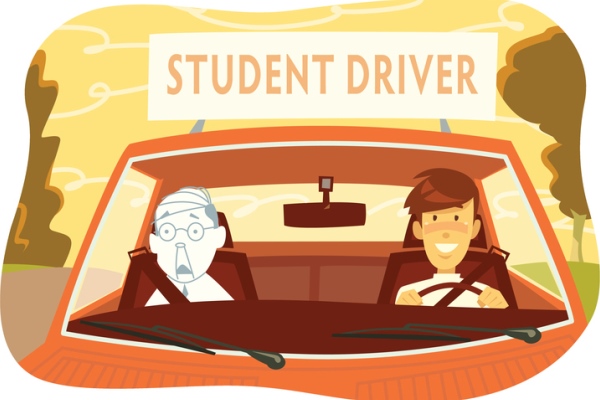
Annika Larson says,
My son will begin driving soon, and we want to make sure we can help him stay safe. I agree with you that knowing the law, and making sure it is followed, whether with a driving permit or a new license, can help teens to be protected. When he is first starting to drive, we will be sure to try and give him to give him the right experience and instruction needed. Perhaps a driving school could help with this as well. Thanks for sharing!
perfinya says,
I wish that when a teenager in the family gets his/her license, the insurance plan wouldn’t change. I think this disables many teenagers from being able to get their license since their parents don’t want to pay more money.
Jennifer Babb says,
The articles and information about teen driving and the mobile app have been informative and timely. Thank you. I plan to use the information provided in the teen river article to develop a contract/rules for my son who will be a new driver in a few months. The mobile app will be helpful for my son who is deaf as it will provide more independence for him and he will not need to contact me to facilitate road side assistance.
Josie says,
Yeah it’s likely accurate, though double check with your own insurance agent to be sure. I just licensed my teen boys. When they had learner’s permits, my carrier covered them (without charge) when they were driving with a licensed driver over age 21.
My understanding is the “instructing driver” would be the one liable for the operation of the car when with them…as well as with tickets. This situation applied to State Farm, and Texas. Your own agent should confirm for your state & carrier, but I do believe it’s a common practice.